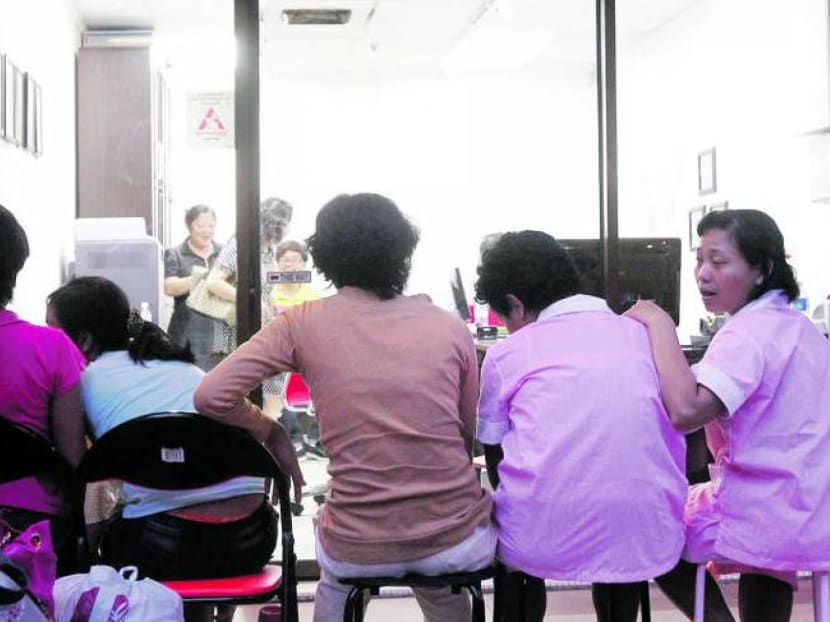24% of maids suffer from poor mental health: Survey
SINGAPORE — A survey of nearly 700 foreign domestic workers here has found that more than two in 10 respondents are suffering from poor mental health.
SINGAPORE — A survey of nearly 700 foreign domestic workers here has found that more than two in 10 respondents are suffering from poor mental health.
Releasing the findings of the survey yesterday, the Humanitarian Organization for Migration Economics (HOME) said such a prevalence rate indicates that maids working here are doubly at risk of developing mental health problems compared with Singapore’s general population.
The survey was conducted between November 2013 and May last year. The respondents came from Indonesia, the Philippines and Myanmar, among other countries, and their average age was 33.
Based on answers to questions on well-being — such as whether they had thoughts of ending their life, whether they feel “nervousness or shakiness inside” and whether they felt afraid — HOME concluded that about 24 per cent of the 670 maids surveyed have poor mental health.
The most severe symptoms were for depression and psychoticism, which is a mental state of losing contact with reality. The symptoms for depression include persistent “low” moods and self-esteem as well as loss of interest, pleasure and hope, while those for psychoticism include hallucinations.
The survey also looked at the working conditions of maids here. It found that about half the respondents had experienced some form of abusive behaviour, such as being yelled or screamed at, or being subject to name-calling. Forty per cent did not have a weekly day off and 67 per cent had their passport held by their employers. About a third (32 per cent) experienced difficulties due to language barriers when communicating with their employers.
HOME said there were correlations between the workers’ mental health issues and exploitative, restrictive and abusive working and living conditions. Noting this, it said in the survey report that workers should have sufficient rest, adequate attention from employers on their nutritional and medical needs, their own room to sleep in and a stable social network.
Signs of mental health problems employers can look out for include emotional outbursts, feelings of depression or unhappiness, quietness or withdrawal.
HOME also said workers should be encouraged to be proactive and to approach friends, family and organisations such as HOME for help when they experience distress, have family concerns or a mental health problem.
They should also learn the language of the employer, which is typically English or Mandarin. Employers should learn some useful phrases of their domestic workers’ native language, maintain open channels of communication and treat them professionally and with respect.
Meanwhile, HOME said the Government should make verbal abuse a reportable offence and communicate a zero-tolerance stance towards the abuse of domestic workers in any form.
HOME executive director Jolovan Wham said the organisation has seen cases of domestic workers seeking help for mental-health related issues.
In such instances, the organisation would send them to Silver Ribbon, a non-profit organisation which advocates against the stigma of mental illness and encourages early treatment. In more severe cases, they would be referred to the Institute of Mental Health.










